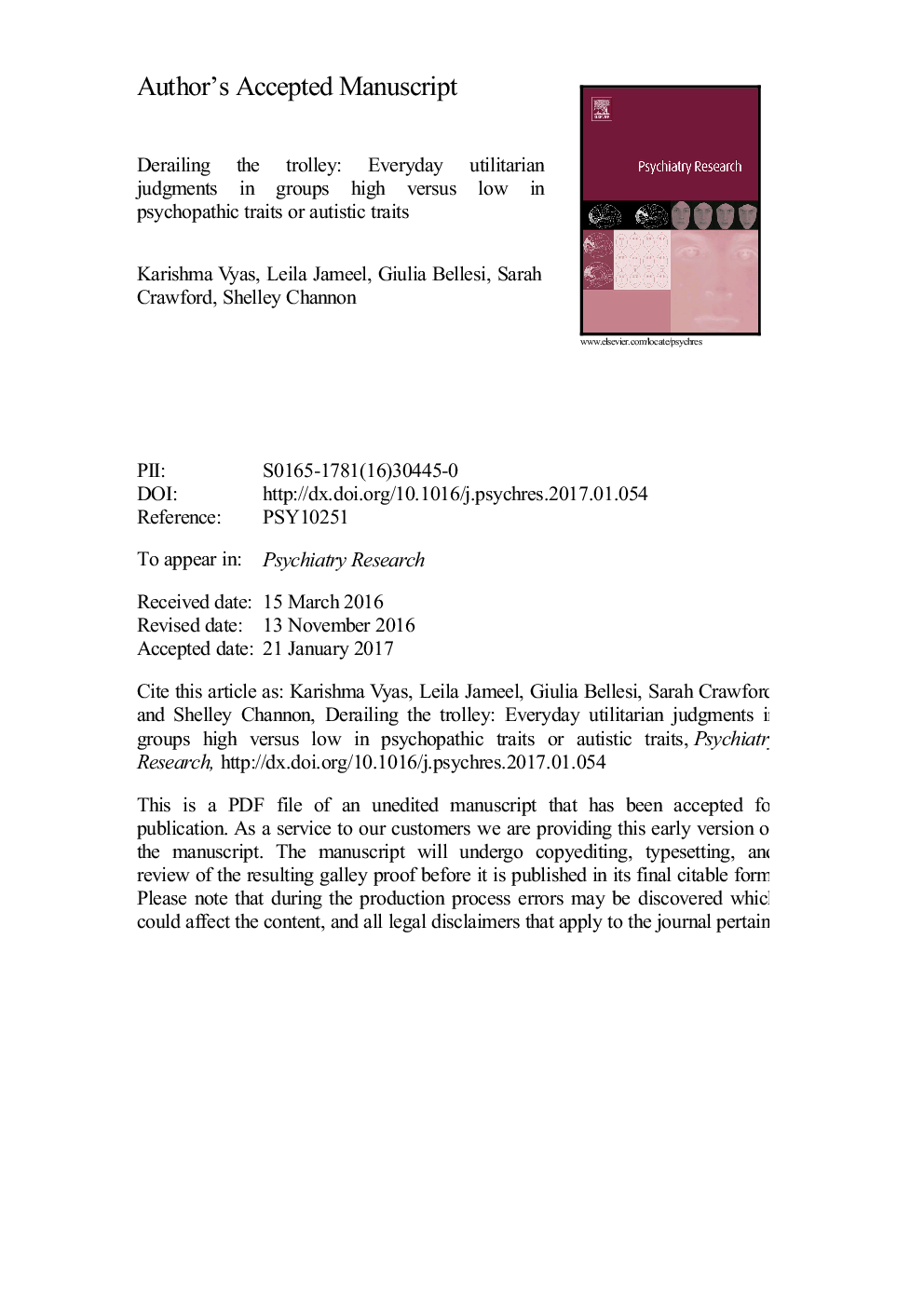ترجمه فارسی عنوان مقاله
از بین بردن واگن برقی: قضاوت های مفید هر روز در گروه ها در مقایسه با صفات روانپریشی کم و یا صفات اوتیستیک
عنوان انگلیسی
Derailing the trolley: Everyday utilitarian judgments in groups high versus low in psychopathic traits or autistic traits
| کد مقاله | سال انتشار | تعداد صفحات مقاله انگلیسی |
|---|---|---|
| 116066 | 2017 | 33 صفحه PDF |
منبع

Publisher : Elsevier - Science Direct (الزویر - ساینس دایرکت)
Journal : Psychiatry Research, Volume 250, April 2017, Pages 84-91
ترجمه کلمات کلیدی
سودآور بودن، اخلاق، اختلالات فکری و روانی، اختلال طیف اوتیسم، یکدلی،
کلمات کلیدی انگلیسی
Utilitarianism; Morality; Psychopathy; Autism spectrum disorder; Empathy;

